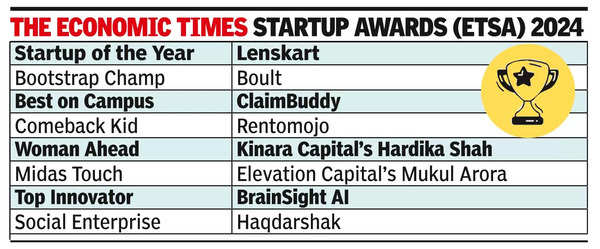BENGALURU: Union minister for electronics and IT, Ashwini Vaishnaw, expressed confidence that technological innovation will continue to thrive despite the implementation of AI regulations. He emphasised that these regulations, which include appropriate safeguards, will not hinder the growth and development of AI (Artificial Intelligence) technologies.
Vaishnaw’s statement underscores the govt’s commitment to foster a conducive environment to encourage AI innovation.It also highlights the importance of ensuring that AI guardrails are in place to allay potential risks and concerns associated with AI. “Our approach in the AI mission is basically the approach of democratising technology. Our Prime Minister has always mandated that technology has to be accessible to all the startups, academia, students, and researchers. It cannot be monopolised by a handful. So that’s why the entire approach in our AI mission is to make sure that the public investment creates an infrastructure which is then used by multiple people,” he said at the tenth edition of the The Economic Times Startup Awards (ETSA) 2024, held in Bengaluru on Saturday.

“We have two different models before us. One is the US model. The second is the European model. I honestly don’t think that the way some of the countries have put so much regulation on AI is the right way to go. The way we created a structure in our data privacy law and in the telecom law, we’ve allowed the space for innovation to flourish. We ensured that while providing this space, the potential harms that could affect society were fully controlled. We will be able to apply this approach in the case of AI as well,” he added.
He said the govt has consistently leveraged pre-existing structures within welfare programmes. He cited the example of digital identities, which play a central role in both the healthcare and agriculture industries. “The Prime Minister launched the agriculture mission. With digital lending, we want to create a system where big banks and lenders pursue loans less than $10. Now, loans worth $200 million have been disbursed where the average ticket size is Rs 2,000. Many startups are working on such solutions. It has taken us two years to get here,” Vaishnaw said.
Addressing the policy decision to have more FM stations and withdrawing the broadcast bill, Vaishnaw said the govt is looking to build the creator economy to harness India’s soft power. “There is a huge creator’s economy. The way tech has emerged, it is possible for someone from a village to do videos on the culture of that place or cuisine and become a global sensation,” he added.
In a fireside chat with Infosys co-founder and chairman Nandan Nilekani, Lenskart co-founder Peyush Bansal said the current economic scenario presents an opportunity for entrepreneurs to demonstrate to investors their ability to effectively allocate profits. “Earlier the question was whether startups can make profits. Everybody is starting to make profits now,” Bansal said. His remarks come at a time when investors are increasingly asking startups to generate returns from the capital they raised during the period of low interest rates. Nilekani is also the jury chair for this year’s awards.
Bansal also emphasised the importance of startups being prudent with their financial resources. “If the company starts treating a Rs 1 lakh as Rs 1, then something is going to be wrong. I have seen that in my own company,” he cautioned, highlighting the need for responsible financial management within startups.
Nilekani also steered the discussion towards the concept of ‘grandfathering of startups,’ referring to the trend of startup founders continuously establishing and nurturing new ventures.
